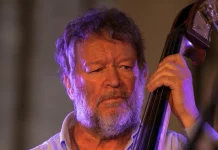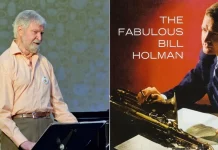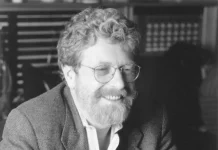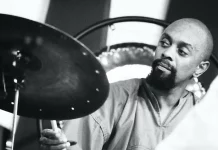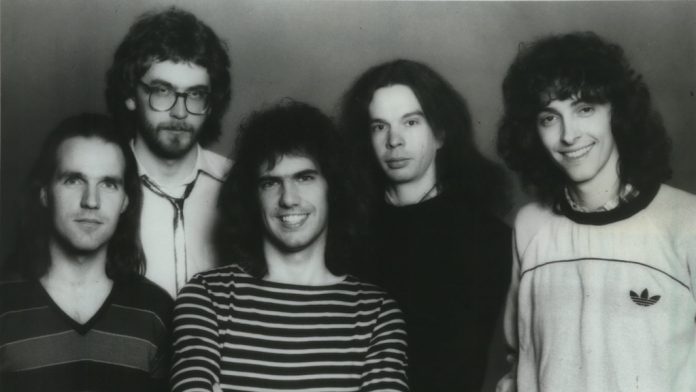
Keyboard master, composer, founding member of the Pat Metheny Group and self-taught architect, Lyle Mays died in Los Angeles on the morning of 10th February 2020 aged 66. Known to have been battling against a long-term recurring illness, he passed away surrounded by family and friends, including former Metheny Group bandmate Steve Rodby.
Born in Wausaukee, Wisconsin, 27 November 1953, Lyle David Mays came from a musical family. Developing an early interest in mathematics, architecture and chess, Mays played organ at his local church, and as a teenager was guided into the world of jazz by the twin touchstones of Bill Evans and electric-era Miles Davis. An appreciation of science would never leave him, and amongst Mays’ many non-musical achievements was designing a house for his sister.
By the time Mays had finished his formal education, his arrangements for North Texas State University Lab Band could be heard on the Grammy nominated Lab 75, the first of 23 lifetime nominations for the Recording Academy’s coveted gong. Mays toured with Woody Herman for eight months between 1975 and 1976, but it was a meeting with guitarist Pat Metheny at the 1974 Wichita Jazz Festival that would come to most define his subsequent career.
Mays appeared on Metheny’s 1977 album Watercolours (ECM), and it was their elegiac 1982 masterpiece As Falls Wichita, So Falls Wichita Falls that really cemented Mays’ reputation as a sound painter par excellence. The original Pat Metheny Group, a pared-back quartet with Mark Egan and Danny Gottlieb, debuted in 1977. Right through to This Way Up (2005) Mays’ elegant acoustic piano flights and rich keyboard textures were an ever-present feature of their radiant sound. Enjoying huge crossover success, the group is still regarded by many as the last word in fusion; each of Mays’ 11 Grammy wins came during his tenure with the band.
Writing shortly after Mays’ death, Metheny said: “Lyle was one of the greatest musicians I have ever known. Across more than 30 years, every moment we shared in music was special. From the first notes we played together, we had an immediate bond. His broad intelligence and musical wisdom informed every aspect of who he was in every way. I will miss him with all my heart”.
Aside from many years of touring with Metheny, Mays recorded for ECM with Steve Swallow and Eberhard Weber, and the latter’s Later That Evening (1982) is one of the label’s very best albums. As for so many artists of his generation, rock and popular music were formative influences, and Mays’ collaborative credits also included recordings with Joni Mitchell (Shadows And Light, 1980), Rickie Lee Jones (Girl At Her Volcano, 1983), and Earth Wind & Fire (Heritage, 1990).
“I kind of feel like the music industry has left me”, he said in a revealing podcast interview for Jazziz in 2016, and his observation that people were increasingly reluctant to pay for music has proven to be remarkably prescient
It is perhaps surprising that his own discography stretched to just five albums. An eponymous 1986 debut carried on in the Metheny Group vein, while the lush Braziliana of Street Dreams (1988) juxtaposed big band and chamber orchestra. Fictionary (1993) with Marc Johnson and Jack DeJohnette perhaps brought the most straight-ahead music of Mays’ career, while Solo: Improvisations For Expanded Piano (2000) was an epic journey through a MIDI-enhanced landscape. The same neo-romantic streak that had made Wichita Falls so appealing echoed through the work, and Mays’ interest in classical composers from Bach to Bartók was very apparent.
Retiring from music in 2011, Mays embarked on a new profession as a software designer. “I kind of feel like the music industry has left me”, he said in a revealing podcast interview for Jazziz in 2016, and his observation that people were increasingly reluctant to pay for music has proven to be remarkably prescient.
Mays’ final post-retirement release, The Ludwigsburg Concert (2016), is an archive recording from 1993. An acoustic quartet featuring Bob Sheppard, Marc Johnson and Mark Walker, it has several pieces from Fictionary rubbing shoulders with reworkings of Metheny Group favourites Au Lait (from Offramp) and Are We There Yet (from Letter From Home). In some respects it neatly squared Mays’ career circle, though it is only really when his five solo albums are viewed as a totality that the extraordinary breadth of his talents can be fully appreciated.
Mays is survived by two sisters. Carrying on the family’s musical tradition, his niece Aubrey Johnson, a promising jazz vocalist, released her debut album in 2019.

